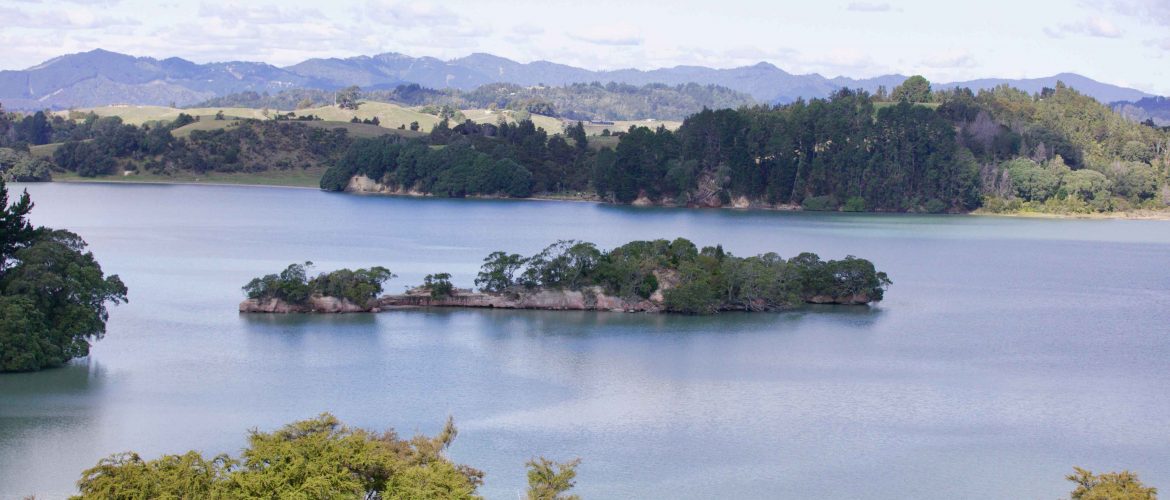Pandemic, terror, fear – these words completely at odds with our island home. Beyond the barriers of our bubble, Coronavirus had taken grip of the globe. What a strange, surreal existence to be locked down in paradise.
We had so many expectations for 2020 and Coronavirus Pandemic certainly wasn’t one of them. Life as we knew it came to a resounding halt at stage 4 of COVID-19 lockdown. Aotearoa was in an inconceivable national state of emergency? Quite unbelievable for most of us to contemplate four weeks at home in isolation, what on earth was that going to be like? We, like many other New Zealander’s, engulfed in a silent, low-level state of anxiety, although exhibiting a calm sense of manageability on the exterior. We were questioning ourselves. Were we ready? Can we do this?
Although not in my nature to panic, I was quietly perturbed at my lack of concern, for our lack of preparation. By the time we attempted to join the frenzied supermarket dash and stash, we were too late, the shelves were empty. Had we been caught on the hop? We do always feel cushioned from the rest of the world on our Island, ‘we are here and they are there’ kind of attitude. So being on an Island within NZ, an already remote group of Islands, we could be forgiven for questioning our readiness.
Confidence that goes with living off the grid
Living on an island lends a quiet confidence to your reality. There are certain things you have to like; solitude, your own company, fewer people and each other. Island life is quiet, we have birds all day long and views of a tidal harbour with cloud shadows stretching across teal waters, grass and bush, wrapping you in a deep sense of security. There is a strange surreality about living on an island during the Coronavirus Pandemic.
Back in early March, we (myself and husband Gerry) had started to get an idea of the seriousness of Coronavirus and the possible impact it could have on our lives. It was only a matter of time before it was on our shores and what did that mean for us? how would the restrictions and limitations impact our reality? The World’s reactions in the media were ambiguous and confusing, it sounded scary, how would that affect our Antipodean bliss?
Fleeing Coronavirus
The Coronavirus outbreak in America was serious and having both our children studying abroad, our daughter in the States and our son in Australia, we made an Executive family decision that we would be ready, to act quickly, to evacuate our children if the situation worsened within their borders. We didn’t have to wait long, on the 10th of March we got word our daughter had been given 72 hours notice to evacuate the College and ideally leave the U.S. Over the next few days, we had flights arranged for both our children to begin their self imposed isolation. I was never happier to have them both home with an absolute sense of relief, they would be safe. I felt great comfort having them home, knowing we were all together under the same roof gave me confidence – we could do this.
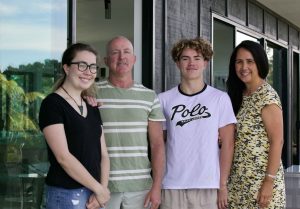
Our first week in isolation (one week before lockdown), had given us time to sort out the personality dynamics within our bubble. It is a very interesting situation when four busy people living quite divided, united and in close proximity. Part of this experience has been coming to terms with disappointments and changing paths. Goals that we had been working towards for some time had been cancelled and now the challenge was to understand a different life trajectory and overcome the setback. What else to do but to just hunker down and get on with it. We decided that we were going to be practical and productive with the weeks to come. The realisation that some of our big goals had been dashed was difficult to deal with, but our new focus had to be about setting and achieving more immediate goals on a smaller scale and we were going to do this together.
Essential necessities of off-grid living
We had good stores of food and necessities; washing powder, medicines, light bulbs etc including materials to do jobs like re-sanding and oiling the hardwood floors. It was almost like we had been preparing for a national state of emergency for the best part of the last 2 decades. Having always kept a fully stocked deep freeze, we weren’t going hungry. For the past 10 years, we had grown our own beef and lamb a bonus of having a few acres. Living on the Island we make the most of the plentiful bounty of Ohiwa Harbour with kahawai, flounder and oysters. Only the week before bringing in a couple of good hauls of snapper. Produce from our orchard includes pears, figs, passionfruit, Nashi pears, kiwifruit, berries and an all-year supply of avocados. Although not big gardeners we keep a small kitchen garden with herbs and seasonal vegetables. We were confident we had everything we needed to easily sustain our family through the Coronavirus crisis.
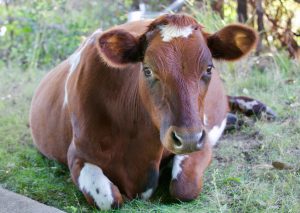
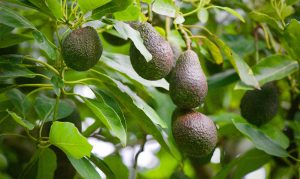
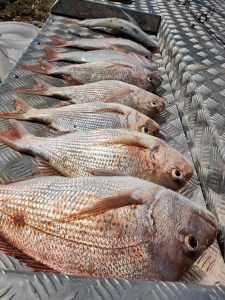
Gerry was our designated shopper breaking the bubble with trips to the supermarket for perishables. It made sense, as he was listed as an essential service provider for solar electrical supply. The Solar Options shop door had been closed at Stage 3 with a couple of urgent installs to do before Stage 4. The very last install was in the Wairarapa for a gentleman living remote needing an urgent power supply before lockdown. We were really happy to get this system in before lockdown as life would have been extremely lonely and uncomfortable for this customer without his off-grid solar system. Although not expecting a lot of repairs, Solar Options was providing emergency essential services for repairs to existing off-grid customers only. Emergency services did not extend to solar grid-tie or solar hot water.
Modern convenience integral to living off-grid
Having a constant energy supply is central to achieving successful off-grid living. If you don’t already know our story, our home is powered entirely by solar and I can’t remember the last time we used our backup generator. Being in the Solar business means that we have a serious solar set up to run our house – 12 photovoltaic panels, a bank of eight 6 volt lead-carbon 300 ah batteries with an ESO 5000 inverter. We never wanted our off-grid lifestyle experience to feel like camping. To live comfortably in our home we run a lot of appliances, especially in the kitchen: including pyrolytic cleaning oven, dishwasher, range hood, side by side fridge and freezer, Nespresso. televisions, computers, AppleTV, vacuum cleaners, washing machine which all contribute to modern life and ease of living. With the right energy system, there is no reason for modern convenience to be excluded from living off-grid. However romantic my wartime notions of COVID lockdown were, I certainly was never up to Nana’s life of hardship. But during these testing times baking Nana’s favourites has become our daily norm.
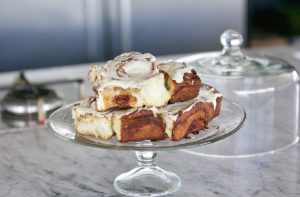
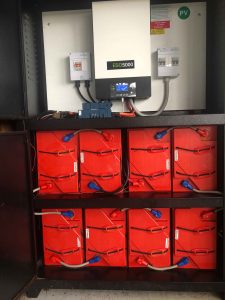
Water is the other single most important element of a self-sustained life. As we found out one very hot Summer when our spring ran dry forcing us to find another source. Coming into March our deep groundwater source was strong, even during the Summer drought. Our freshwater is stored in a 30,000-litre water tank, filled by a solar pump and then gravity fed to the house. Our hot water is then heated by an evacuated solar tube system which feeds to a 500-litre hot water cylinder and a preheat of 2500 litres. This is an excessive amount of hot water, more than most homes would require but is a great safeguard against consecutive overcast days, and very long teenage showers. The excess overflow heats our spa pool which we love to use when the weather cools off.
With the cooler months fast approaching heating, the house becomes an important factor. Our house is heated by a large wood heater in the main living area which has a wet back that boosts a separate solar hot water tank, heating radiators in the upstairs bedrooms, bathrooms and media room and the underfloor heating downstairs. Good insulation on windows, walls and roof keeps us snug. One of the first family lockdown jobs was to cut and store our wood supply for the upcoming Winter months.
Living isolated in Isolation
Our single greatest motivation for an off-grid lifestyle was to achieve a sense of freedom, and to experience a greater connection to our whenua (land). It was important for us as parents to gain a sense of independence and control of how our family lived. I was asked recently “what was it like being isolated in isolation?”, I think I always knew something like COVID-19 was going to happen, and really, we had been preparing for lockdown forever. Did I feel safe? absolutely! I feel so safe and so grateful for our Island home, harbouring us within a harbour. I am acutely aware that not all NZ’ers were going to feel as confident with their varying situations over the next four weeks. Certainly, we are not all living the same reality.
Coronavirus pandemic has given us the luxury of time. We hadn’t spent this much time together since our children were very young. Being a busy, creative family we always have projects on the go, so this imposed holiday has been bliss. I’ve come to realise that we aren’t the ‘fun’ loving family, that post clips of their daily antics on social media, that I admire so much. We like to get jobs done, we like to work both mentally and physically. Doing the big jobs together on the land, like scrub clearing, eradicating weeds and pests, maintenance and repairs on your own land and buildings are immensely rewarding. Having the time to prepare and share a meal made from your own produce or gathering is beyond satisfying. We’ve had time to spend on our business and not in our business for a change. Time to study and workout. Time to sleep in. Time to watch movies together. These certainly have been unprecedented times, however an incredibly valuable time. The Coronavirus outbreak has given us the opportunity to take stock of what we’ve achieved on our island and never before have we appreciated living off the grid as we do now.


